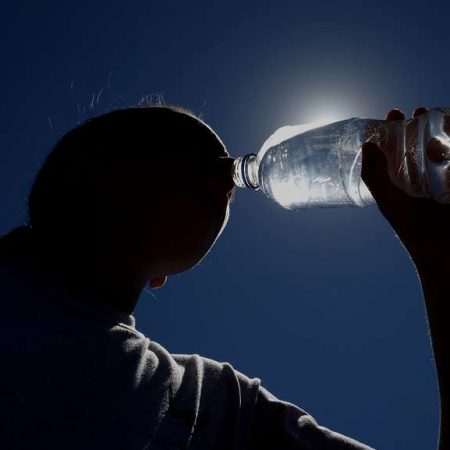Older adults should take extra precautions during extreme heat this summer
Michigan has seen some extreme weather the past few weeks, with temperatures rising recently into the upper 90s and a heat index pushing 100 degrees.
Older adults are more susceptible to heat exhaustion or heat stroke during these periods of extreme heat.
Temperatures are expected to remain high this week in metro Detroit. The National Weather Service is projecting a high of 88 degrees on the Fourth of July, and a high of 94 degrees over the holiday weekend.
Dr. Pragnesh Patel, chief of the Division of Geriatrics at Wayne State University and the Detroit Medical Center, says older adults are some of the most vulnerable to becoming ill from extreme heat.
“With aging, there are changes, and they have multiple comorbid conditions that can put them at risk from higher temperature,” he said. “That can lead to some serious consequences if they don’t take precautions.”
Some of these illnesses include heat exhaustion, which can then lead to heat stroke, a dangerous condition where the body can no longer control its temperature’
Symptoms of heat stroke:
- Confusion, slurred speech
- Hot, dry skin
- Absent or profuse sweating
- Very high body temperature
- Loss of consciousness
- Fatal if treatment delayed
Heat exhaustion symptoms include headaches, dizziness, lightheadedness, cramps and elevated body temperature. Patel says in addition to these symptoms, people with heat stroke can run a high fever of 104 degrees or more and not perspire.
“Despite the excessive high temperatures, you’re not able to dissipate that heat through the sweating mechanism. And they also become very confused, become disoriented, have rapid heartbeat, palpitations and shallow breathing — just a severe form of exhaustion,” he said.
Heat stroke is the most serious heat-related illness, according to the Centers for Disease Control and Prevention. If left untreated, it can cause permanent disability or death.
Staying hydrated is among the best ways to prevent heat-related illnesses. Patel says older adults should stay hydrated even if they may not feel thirsty. He also suggested that people stay indoors in cool areas, wear lighter, loose-fitting clothing, and reduce caffeine intake.
He says older adults are often hospitalized for dehydration, which is why they should take extra precautions during extreme heat events.
“They come with symptoms of heat stroke, and a lot of older folks are susceptible to this because they also have other conditions, or they may be taking medications that puts them at higher risk,” Patel said.
People can call 2-1-1 or their local health department to find a nearby cooling center.
Trusted, accurate, up-to-date.
WDET strives to make our journalism accessible to everyone. As a public media institution, we maintain our journalistic integrity through independent support from readers like you. If you value WDET as your source of news, music and conversation, please make a gift today.Donate today »
The post Older adults should take extra precautions during extreme heat this summer appeared first on WDET 101.9 FM.
